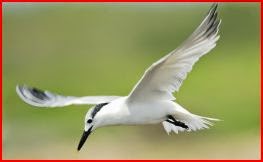The July 4th2014 Times Literary Supplement had a piece on the Piers Plowman tale.
Here’s Wikipedia’s entry about the work:
Piers Plowman (written c. 1360–87) or Visio Willelmi de Piers Plowman (William's Vision of Piers Plowman) is a Middle English allegorical narrative poem by William Langland. It is written in unrhymed alliterative verse divided into sections called "passus" (Latin for "step"). Piers is considered by many critics to be one of the greatest works of English literature of the Middle Ages, along with Chaucer'sCanterbury Tales and the Pearl poet's Sir Gawain and the Green Knight.
The TLS review (Page 23) by James Wade was about a book by Lawrence Warner, The Myth of Piers Plowman: Constructing a medieval literary archive [Cambridge University Press, 2014, $95].
There were insights that go to the problem and exegesis of the 1947 Roswell incident that UFO researchers – real researchers – might apply to resolve that mystery (or myth, if you will).
(I will sometimes substitute Roswell for those places in the review that mention the “Langland studies” or “Piers Plowman Studies” to make my point, or suggestion.)
“Warner [in his book] assembles [a] motley crew of rogues and oddballs to serve up a rollicking tale of how a field of study [Roswell?] came to be created, or rather, fabricated.”
“When it comes to the long history of amassing raw material of [Roswell], a history this book traces … it turns out to be neither possible or necessarily productive to always distinguish between those who created, those who copied, those who corrected and those who just made things up.”
“[Warner] follows C. David Benson’s influential study Public Piers Plowman (2003), which defines myth as ‘a narrative that explains what is unknown and perhaps unknowable.’”
“… the Myth of Piers Plowman is focused on showing how ‘the unknown’ in Langland scholarship often turns out to be just ‘the unlooked for’ or ‘the unconsidered.’”
“… the book ends, appropriately, with a call to … medievalists to log out of online archives such as JSTOR or EEBO (valuable as those resources are) and tuck into the [Roswell] material themselves.”
“The point of all this, of course, is to make available new discoveries and new learning, but also to explore what happens when the [Roswell] archive expands, to see what a filed of scholarship looks like when it takes on new contours.”
“ …[but] a final caution: tread lightly … for like the mad and melancholic archivists this book chronicles, we cannot help fabricating the archive that we .. hope to interpret.”
RR
















































